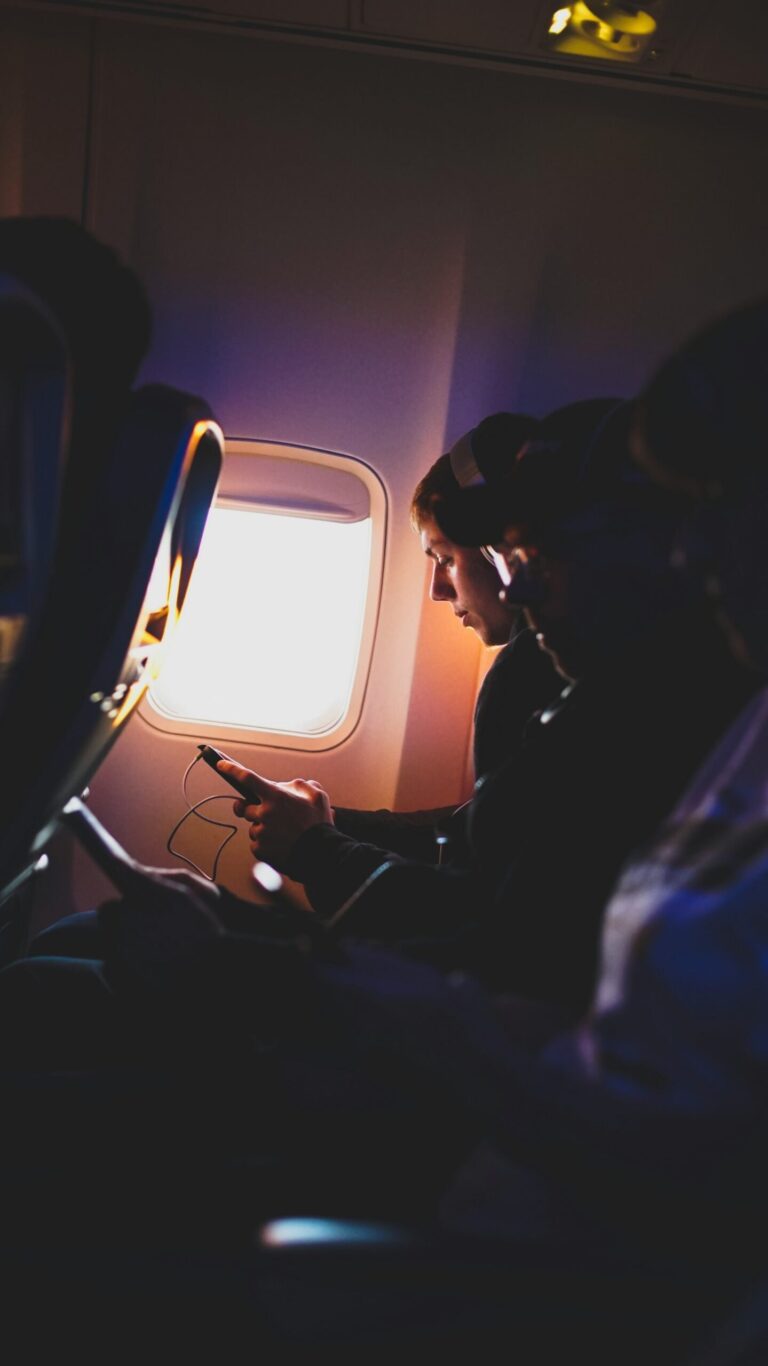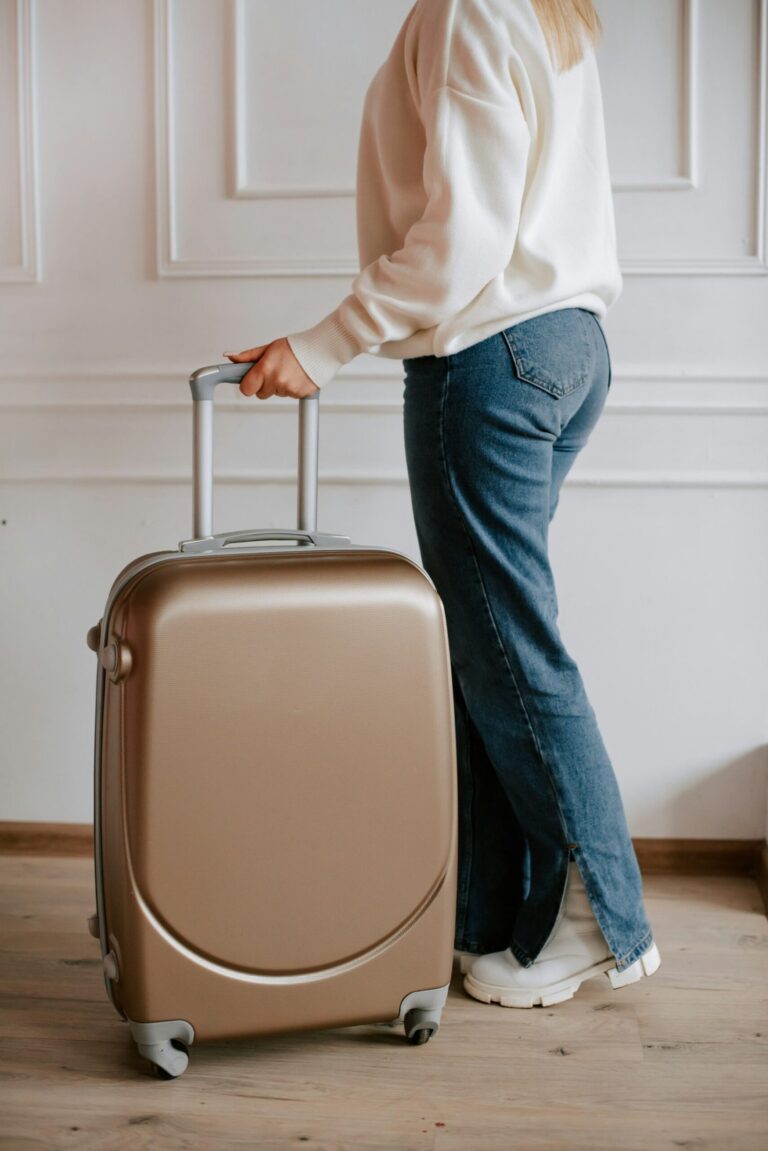Ways to Minimize Jetlag: Tips for a Smoother Travel Experience
Traveling to a new time zone can be an exciting adventure, but it often comes with the unwelcome companion of jet lag. The fatigue, disorientation, and disrupted sleep patterns can dampen your exploration.
To minimize jet lag, focus on adjusting your sleep schedule before you travel, staying hydrated, and seeking out natural light upon arrival.
Simple strategies can make your transition smoother and help you survive long haul flights. You can enhance your experience by incorporating short naps and staying active, which will not only boost your energy but also help your body adjust faster to the new time zone.
Understanding how to effectively combat jet lag can transform your travels from a struggle into a delightful journey. With a few tips and tricks at your disposal, you can step off that plane ready to explore and embrace your new surroundings.
Understanding Jet Lag
Jet lag occurs when your body’s internal clock is out of sync with the local time at your destination. This misalignment can lead to various symptoms that can affect your travel experience. Understanding the biological clock and how time zone changes impact your body is essential to managing and minimizing jet lag.
Biological Clock and Circadian Rhythms
Your body operates on a natural rhythm known as the circadian rhythm. This biological clock regulates sleep, wakefulness, and other bodily functions over a 24-hour cycle. When you travel across time zones, this rhythm can be disrupted, causing feelings of fatigue and irritability.
To adjust, your body needs time to realign itself with the new time zone. Typically, it takes one day per time zone crossed for your body to acclimate. Strategies like gradually shifting your sleep schedule before your trip can help ease this transition. Exposure to natural light can also reinforce your new rhythm, signaling your body when to be awake or asleep.
Effects of Time Zone Changes
Traveling across multiple time zones can lead to physical and mental discomfort. Symptoms of jet lag may include headaches, difficulty concentrating, and digestive issues. The more time zones you cross, the more pronounced these effects can be.
You might feel especially tired during the day and struggle to sleep at night. Staying hydrated and avoiding caffeine and alcohol during your flight can help mitigate these effects. It’s also beneficial to take short naps upon arrival to recharge without disrupting your new schedule. Understanding these effects can empower you to take proactive steps to enjoy your travels more fully.
Pre-Travel Preparation
To reduce the effects of jet lag, thorough preparation before your trip is crucial. By adjusting your sleep schedule and making smart packing choices, you can help your body adapt to a new time zone more easily.
Adjusting Your Sleep Schedule
Start adjusting your sleep schedule a few days before your departure. Gradually shift your bedtime and wake-up time closer to that of your destination. If you’re traveling east, try going to bed 30 minutes earlier each night; if heading west, stay up 30 minutes later.
Consider using a sleep app to track your progress. This proactive approach signals your body to adapt to the new timing.
Light exposure is also key. During your flight, expose yourself to as much natural light as possible at your destination. This helps regulate your circadian rhythm, making adjustment smoother.
Smart Packing Essentials
Packing smartly can also aid in minimizing jet lag. Include a sleep mask and earplugs to create a comfortable resting environment during your flight.
Hydration is vital, so bring an empty water bottle to fill after security checks. Aim to drink water throughout your travel to combat dryness and fatigue.
Additionally, consider packing snacks that are high in protein rather than sugary treats. These stabilizing snacks can help maintain your energy levels.
Lastly, bring travel-size melatonin supplements to help regulate your sleep. Consult a healthcare professional before using them, especially if you’re unfamiliar with their effects.
Read more about carry on essentials that make your trip more comfortable here.
Onboard Strategies
Managing jet lag effectively requires deliberate actions while you’re on the flight. Focusing on hydration, diet, sleep, and movement can greatly enhance your travel experience.
Hydration and Diet
Staying hydrated is crucial during your flight. The dry cabin air can lead to dehydration, which exacerbates fatigue. Drink plenty of water before and during the flight, aiming for at least 8 ounces per hour.
Avoid alcohol and excessive caffeine, as they can disrupt your sleep cycle and dehydrate you. Instead, opt for lighter meals to prevent feeling sluggish. Foods rich in protein, such as nuts or yogurt, can help stabilize your energy levels.
Consider adjusting your meal times based on your destination’s time zone. Eating closer to your destination’s meal times can help your body adapt more smoothly.
Sleeping and Movement
Creating a comfortable sleeping environment can improve your rest. Wear an eye mask and earplugs to block out light and noise. Adjust your seat to find the best position. If possible, elevate your legs for better circulation.
Incorporate movement into your journey. Stand up and stretch every couple of hours to reduce stiffness. Simple exercises, like ankle circles or shoulder rolls, can enhance blood flow and keep you alert.
When you feel tired, try to nap strategically. Short naps of 20-30 minutes can rejuvenate you without making you groggy. By managing sleep and movement, you’re setting yourself up to combat jet lag effectively.
Upon Arrival
When you land in a new time zone, adjusting quickly is crucial to reducing jet lag. Focusing on syncing your body to local time and getting the right light exposure can make a significant difference.
Syncing with Local Time
Immediately align yourself with the local schedule. If it’s daytime, resist the temptation to nap. Instead, stay awake and engage in activities that keep you energized. If it’s nighttime, go to sleep at the local bedtime, even if it feels early.
To help with this transition, consider the following tips:
- Stay Hydrated: Drink plenty of water. Hydration can improve your energy and alleviate fatigue.
- Eat Meals at Local Times: Consume your meals according to the new time zone to signal to your body that it’s time to adjust.
- Avoid Caffeine and Alcohol: Both can disrupt your sleep patterns, so limit these during your first day.
Strategic Exposure to Light
Light plays a crucial role in regulating your internal clock. Upon arrival, aim to get as much natural light as possible.
- Morning Light: If you arrive in the morning, spend time outdoors. Morning light helps signal your brain that it’s time to be awake.
- Evening Light Avoidance: Conversely, if you land in the evening, reduce exposure to bright lights. Dim your surroundings to cue your body for rest.
By managing light exposure, you can effectively support your body’s adjustment to the local time, improving your travel experience and reducing fatigue.
Wellness and Self-Care
Taking care of your mental and physical well-being is essential for minimizing jet lag. Implementing relaxation techniques and maintaining proper nutrition and exercise can significantly enhance your travel experience.
Relaxation Techniques
Incorporating relaxation techniques into your routine can help ease the transition to a new time zone. Practices like meditation or deep breathing exercises can reduce stress and promote a sense of calm.
- Meditation: Spend 10-15 minutes each day focusing on your breath. This can ground you and improve sleep quality.
- Progressive Muscle Relaxation: Tense and then relax each muscle group. This technique not only helps relieve tension but also prepares your body for rest.
Consider using guided meditation apps for convenience. Listening to calming music or nature sounds can also create a soothing environment. Consistent practice can lead to better sleep patterns and reduce the severity of jet lag symptoms.
Nutrition and Exercise
Your diet and physical activity level play crucial roles in how your body adjusts after traveling.
Staying hydrated and eating nutritious foods can enhance your body’s ability to adapt.
- Hydration: Drink plenty of water before, during, and after your flight. Dehydration can worsen fatigue and jet lag symptoms.
- Balanced Diet: Focus on whole foods, such as fruits, vegetables, lean proteins, and whole grains. Foods rich in magnesium, like nuts and seeds, can promote better sleep.
Incorporating light exercise, such as stretching or short walks, can also boost your energy levels and mood.
Aim for at least 30 minutes of moderate activity daily. This not only keeps you active but also helps regulate your body’s internal clock.






